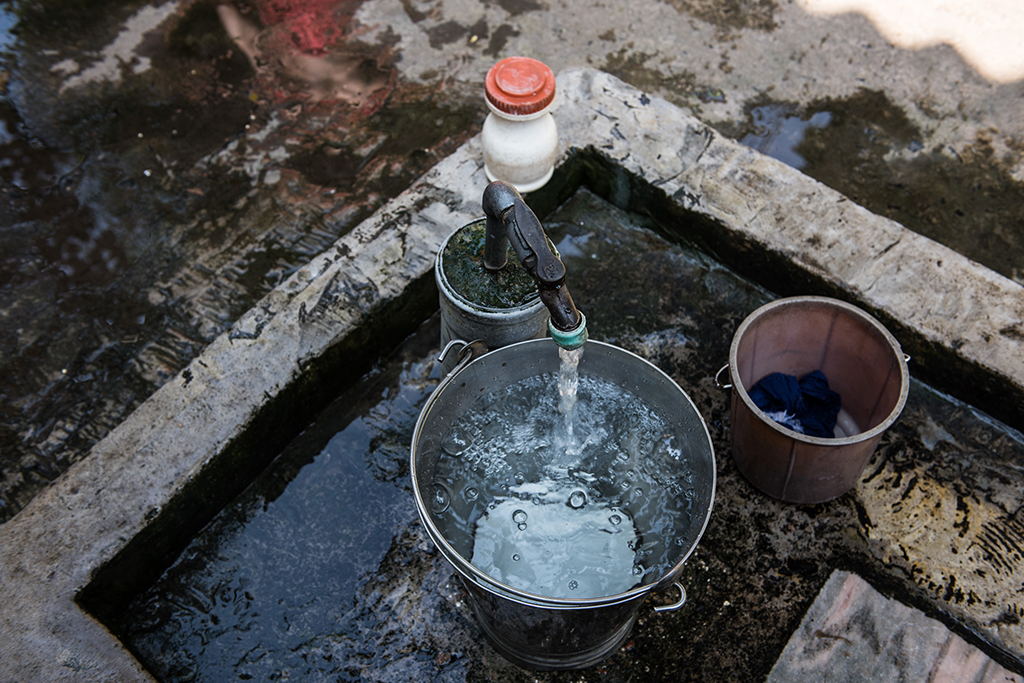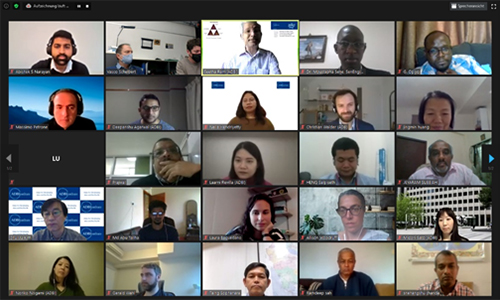
Over a billion people across Asia and the Pacific still lack access to basic sanitation services (JMP 2019 [1]). Most low- and middle-income countries in Central Asia, South Asia, and East Asia still do not have safely managed sanitation services. Further, only a fifth of the countries practicing open defecation are on track to eliminate this practice around the world. Clearly, business as usual in the sanitation sector has not solved this challenge in the last several decades.
Citywide inclusive sanitation (CWIS) presents a shift in the urban sanitation paradigm toward adopting more contextual solutions that are sustainable and equitable (Narayan and Lüthi 2020 [2]). It asserts six key principles of (i) equity, (ii) environmental and public health, (iii) a mix of technologies, (iv) comprehensive planning, (v) monitoring and accountability and (vi) a mix of business and service models. It emphasizes a service approach with resource management, accountability, and responsibility that traverses the public and private sectors (Schrecongost et al. 2020 [3]).
This approach requires radical new thinking on urban sanitation. CWIS is more complex and includes soft institutions as much as hard infrastructure. Therefore, the planning and designing of projects demand a more comprehensive process that looks at the policies, institutions, regulations, and stakeholder inclusion along with contextually appropriate technologies that may also include non-sewered components. Such contextualization necessitates considerable efforts in understanding the situation through detailed diagnostic studies.
Consultants, the public sector, and multilateral development bank professionals traditionally have garnered expertise in conventional sewer-based master planning. Since the CWIS approach demands a more comprehensive “business-as-unusual” approach (Gambrill et al. 2020 [4]), planners and project managers require further capacity building to adopt and embrace CWIS and operationalize its principles in sanitation projects.
Keeping stock of the changing needs of the sanitation sector, ADBI, the Bill and Melinda Gates Foundation, and Eawag, the Swiss Federal Institute of Aquatic Science and Technology, convened an online course on “Winning Bids for CWIS : Principles and Their Application [5]” for sanitation professionals across Asia in November 2020. Twenty practitioners from various countries, including Bangladesh, Cambodia, India, Nepal, and the Philippines, took part in the on-the-job training. Although originally envisioned as live, in-person training, due to the coronavirus disease (COVID-19), it was adapted into a special online private course hosted on the Coursera platform.
A Screenshot of the Participants in a Live Zoom Session on the CWIS Training Program

Source: ADBI.
The course built on Eawag’s previous experience of hosting massive online open courses on water, sanitation, and solid waste for development and drew on content from Eawag’s ongoing ConCaD [6] initiative, which trains consultants on CWIS across Asia and Africa.
CWIS projects and their terms of reference (ToR) go beyond just infrastructure and place importance on creating equitable plans for inclusive sanitation. Therefore, the course was designed to help consultants who are interested in bidding for these projects and allow them to gain a detailed understanding of CWIS and its many dimensions, including stakeholder engagement, regulatory systems, innovative financing mechanisms, business models, and behavior change. Most sector professionals across cities and small towns in Asia and the Pacific are familiar with their local situations through implicit knowledge. However, in the course, they benefited from exposure to new tools that have been developed in recent years to explicitly assist in the advocacy, situation analysis, planning, implementation, and monitoring of CWIS.
As a final requirement of the CWIS training, the participants were given a hypothetical situation and asked to draft a technical proposal for a sanitation master plan. This group work allowed the participants to learn how to prepare a new generation of CWIS tenders. A jury of seven members evaluated the bids and proposals by each group based upon set criteria for the ToR, the strategy for situation assessment, time and budget allocation, and feasibility of time constraints.
Three key learnings from convening and conducting such a capacity development course on CWIS are:
- Group activities foster valuable peer exchanges among a diverse array of participants. In reality, good CWIS bids also require such diverse expertise.
- A mixed format for course delivery through short videos, virtual lectures, case study materials, live discussions, and exercises allows for meeting the participants’ various learning needs.
- Learning about the CWIS approach requires not just exposure to related theory but also unpacking the complexities that arise in real world cases, e.g., exercises and group work that are based on a new generation of CWIS ToR.
The workshop participants noted that they would apply their new skills on CWIS planning and assessment in their current or future CWIS projects. Conclusively, the participants gained knowledge on the applicability of CWIS tools to develop sanitation projects. ADBI plans to continue in 2021–2023 this new formula for capacity development by combining online sessions and group exercises that are relevant to practitioners who support government officials, policy makers, and professional staff in international organizations.
CWIS is being increasingly embraced by international agencies, donors, and national governments as the way forward for achieving universal equitable and sustainable urban sanitation. However, there is a dearth of CWIS specialists and consultants who can operationalize these principles in projects. Targeted capacity development is urgently required to meet the growing needs of planning and implementing citywide inclusive sanitation.
_____
References:
Gambrill, M., R.J. Gilsdorf, and N. Kotwal. 2020. Citywide Inclusive Sanitation—Business as Unusual: Shifting the Paradigm by Shifting Minds. Frontiers in Environmental Science, 7(February): 1–10.
Narayan. A.S. and C. Lüthi. 2020. Solving Urban Sanitation – Sustainably and Equitably [7]. World Water, 43(4).
Schrecongost, A., D. Pedi, J.W. Rosenboom, R. Shrestha, and R. Ban. 2020. Citywide Inclusive Sanitation: A Public Service Approach for Reaching the Urban Sanitation SDGs. Frontiers in Environmental Science, 8(February): 1–8.
WHO/UNICEF Joint Monitoring Programme for Water Supply, Sanitation and Hygiene (JMP). 2019 Progress on Household Drinking Water, Sanitation and Hygiene 2000-2017. Special Focus on Inequalities. New York, NY.